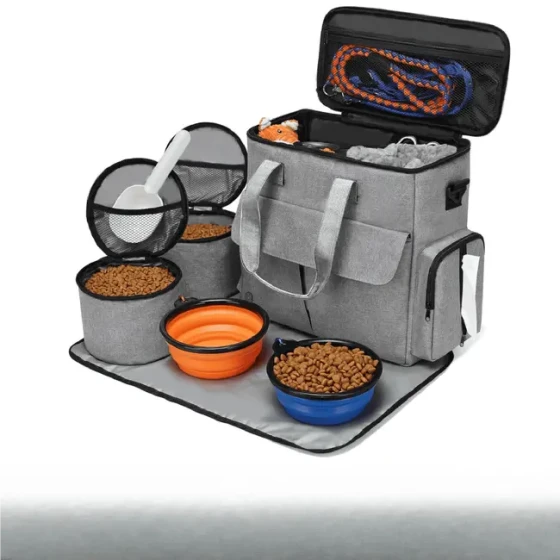What Effect Does Catnip Have on Cats_Revealing the Magical Effects That Make Cats Excited When They Smell It
Catnip, this name that already sounds very "meow," is certainly familiar to cat owners. It is like a "happy magic" in the cat world, always able to instantly turn normally aloof and calm cat masters into lively, even somewhat silly "little crazies." So, what exactly is catnip? Why are cats so fascinated by it? Is it safe for cats? This article will take you to find out, revealing the magical effects of catnip!
Simply put, catnip (Nepeta cataria) is a herbaceous plant that has a special attraction for many cats. It contains a chemical called "nepetalactone," which can affect cats' brains through their olfactory system, triggering a series of amusing behavioral reactions, allowing cats to experience brief excitement and joy. This reaction usually lasts between 5 to 15 minutes, after which cats return to normal.
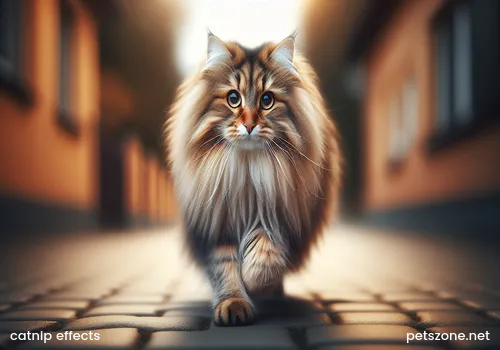
Scientific Principle: Why Are Cats So Captivated?
The reason catnip can make cats "besotted" lies in its content of nepetalactone. This volatile organic compound is mainly found in catnip’s leaves, stems, and flowers. When cats sniff, chew, or rub catnip, nepetalactone is released.
These nepetalactone molecules enter through the cat’s nasal passages and bind with olfactory cells inside the nose. Once these receptors are stimulated, signals are sent to areas of the brain involved in emotion and behavioral responses, such as the amygdala and hypothalamus. This process triggers a series of "high" reactions in cats. Scientists believe nepetalactone acts similar to a cat’s own pheromones, stimulating the brain’s "pleasure center" and producing euphoria.
Interestingly, recent research has found that cats’ response to catnip may not only be for pleasure. A study published in Science Advances showed that nepetalactone in catnip also acts as an effective mosquito repellent. When cats roll and rub on catnip, they are actually applying this substance on themselves to repel mosquitoes. This "self-oiling" behavior may have evolved as a defense mechanism.
Behavioral Manifestations: What Does It Look Like When Cats Get "High"?
Not all cats respond to catnip; this largely depends on genetics. Approximately 50% to 70% of cats are sensitive to catnip. Additionally, age affects response—typically kittens under 6 months and elderly cats show weaker or no reaction.
For cats that do respond to catnip, their behaviors are varied and dramatic, almost like "drama queens"! Common reactions include:
* Sniffing and licking: This is how cats begin interacting with catnip—curiously sniffing it, then possibly licking or chewing.
* Rubbing: Cats use their cheeks, chin, and body to rub on catnip or objects coated with catnip, attempting to transfer nepetalactone onto themselves.
* Rolling: Many cats happily roll on the ground as if entering a trance.
* Vocalizing and purring: Some cats emit joyful meows or continuous purring.
* Excitement and playfulness: Cats may become unusually active, chasing invisible "prey," jumping, or showing mild aggressive play.
* Drooling: Some cats drool after contact with catnip.
* “Zoned-out” state: Occasionally cats display a glazed look, entering a vacant or "spaced-out" state.
These behaviors usually last only briefly, about 5 to 15 minutes, after which the cat gradually calms down. After being "high," cats may lose interest in catnip for a while, entering a "refractory period" requiring several hours before responding again.
Is It Safe? Are There Side Effects?
Many cat owners may worry if catnip is harmful or addictive to cats. Rest assured, current research generally considers catnip safe and non-toxic for cats and does not cause addiction. The excitement induced by catnip is temporary, and cats do not develop physiological dependence.
However, moderation is key. If a cat ingests a large amount of catnip at once, mild gastrointestinal discomfort such as vomiting or diarrhea may occur. This is uncommon and usually resolves on its own.
Also, although most cats exhibit excitement or relaxation from catnip, a very small number might show overstimulation or brief aggressive behavior, especially when excited. If you notice your cat’s response to catnip is unusually intense or aggressive, it's best to stop use. Pregnant cats, weak or ill cats, and those with heart conditions should consult a veterinarian before using catnip.
How to Use Catnip? Tips to Share
There are many ways to give cats catnip; owners can choose the method best suited to their cat:
* Fresh catnip: If conditions allow, plant fresh catnip. Fresh catnip usually has a stronger effect than dried. Simply let cats sniff or play with fresh leaves.
* Dried catnip: The most common form on the market, available as dried leaves, flakes, or powder. Sprinkle it on your cat’s favorite toys, scratching posts, beds, or floor.
* Catnip toys: Many cat toys are filled with dried catnip, which excites cats when they play.
* Catnip spray: Catnip extract spray can be conveniently sprayed on cat trees, beds, or other items to attract cats.
Usage recommendations:
* Moderation: Use small amounts; a pinch (about one teaspoon) of dried catnip is usually enough.
* Frequency control: Avoid overuse; 1-2 times per week is advised. Excessive use may cause cats to become "immune" and reduce effect.
* Observe reaction: When using catnip for the first time, watch your cat’s response for any adverse symptoms.
* Store away after use: To keep catnip fresh and exciting, put away catnip toys or items after use.
* Proper storage: Store dried catnip in a sealed container, protected from moisture and direct sunlight to preserve potency.
Other “Hidden” Benefits of Catnip
Besides making cats "high," catnip has other potential benefits:
* Training aid: Using cats’ love for catnip as a reward or lure can guide them to use designated scratching posts, beds, or perform other training.
* Stress and anxiety relief: For cats prone to nervousness or anxiety, especially during moving, travel, or vet visits, catnip may help relax them. However, note that some cats only relax after the excitement phase, and since catnip mainly excites, cautious use or veterinary advice may be needed if your cat overstimulates under stress.
* Appetite stimulation: Occasional small use of catnip’s aroma may boost appetite, which could help cats with reduced appetite.
Frequently Asked Questions
- Do all cats respond to catnip?
No. About 50% to 70% of cats are sensitive to catnip, a genetic trait. - Is catnip addictive?
No. Catnip is safe and non-toxic and does not cause addiction. - Is catnip effective for kittens or elderly cats?
Generally, kittens under 6 months and older cats have weaker or no responses to catnip. - What is the difference between catnip, cat grass, and silvervine?
Catnip, cat grass, and silvervine are three different plants. Cat grass (usually young grasses like wheatgrass and oat grass) mainly contains fiber and folic acid, assisting with hairball elimination and vitamin supplementation without causing excitement. Catnip contains nepetalactone, mainly causing excitement in cats. Silvervine (also known as matatabi or kiwi-vine) contains actinidine and other substances, often causing stronger excitement than catnip. Some cats unresponsive to catnip may react to silvervine. - What happens if cats eat catnip?
Cats mainly react to the scent with excitement. Small ingestion usually causes no issues and may aid digestion. Large amounts might cause mild gastrointestinal upset like vomiting or diarrhea.
Conclusion
In summary, catnip is a safe and fun toy for many cats, bringing short-term joy and excitement. Understanding how catnip works and how to use it properly helps us interact better with our cat companions and add enjoyment to their lives. Of course, every cat is unique, and their responses vary. Use catnip moderately and safely according to your cat’s individual situation, letting it become a "little helper" to strengthen your bond!
References:
* What are the effects and benefits of catnip, and will it have side effects after use? - Smelly Cat Zoo
* Catnip for cats – information about this plant and its effects
* About catnip: the most professional and comprehensive knowledge you need to know - NetEase
* The correct use of catnip - NetEase
* Curious questions 3: Does catnip work for all cats?
* Must-know owner principles: How to use catnip? Do cats really not get addicted? - Appointment Monster
* What exactly is catnip? Is it harmful to cats? How should we use it? - NetEase
* Differences and uses of cat grass, catnip, and silvervine - Espetsso
* What exactly is the "catnip" that drives cats crazy? - Catfeet
* How to distinguish cat grass, catnip, silvervine?
* [Knowledge] Catnip science: What makes cats so obsessed? - Zhengyue Pet Friends
* What is catnip? Differences with cat grass and silvervine? Effects and uses fully organized! - Monster Tribe
* Is catnip really a drug in the cat world? What impact does it have on cats? - Tencent News
* Why does catnip excite cats, and should cat owners feed it to cats? - Sina
* [Catnip/cat grass] Beneficial plants for cats - CityU Vet Boutique
* Catnip stress relief spray
* How to use catnip, where to buy seeds at once - Cat Boss
* Why are cats addicted to catnip? Originally maybe just for mosquito repellent - Science Popularization China
* Catnip, why is it called “catnip”? - Guangming Science Cloud
* What is catnip? What effects does it have on cats? - Cat Information Channel - Meow Network
* Influence of catnip on cats - Hill’s Pet Nutrition
* Impact of catnip on cats: safe usage guidelines - Dog Fengjia
* How catnip maintains the "cat-attracting constitution" - Science - Sina
* Why cats like catnip - Chinese Academy of Sciences
* Understanding the Effects of Catnip on Cats - Meowijuana
* Why try catnip on your cat? And how it works. | Preventive Vet
* Cats go crazy after eating catnip! Why does catnip drive cats wild? - NetEase
* Cats and Catnip… why the attraction? - Feliway
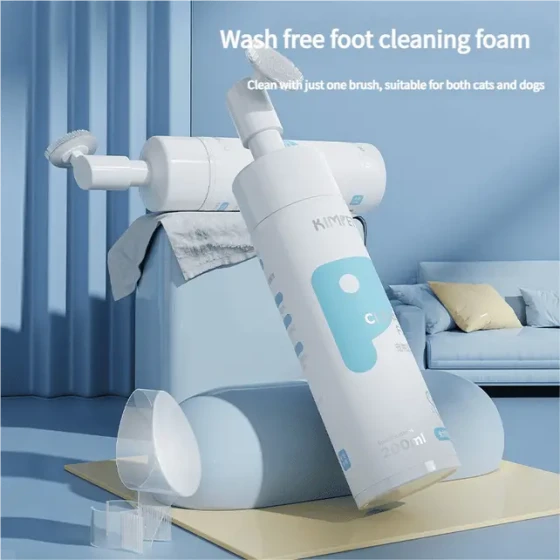
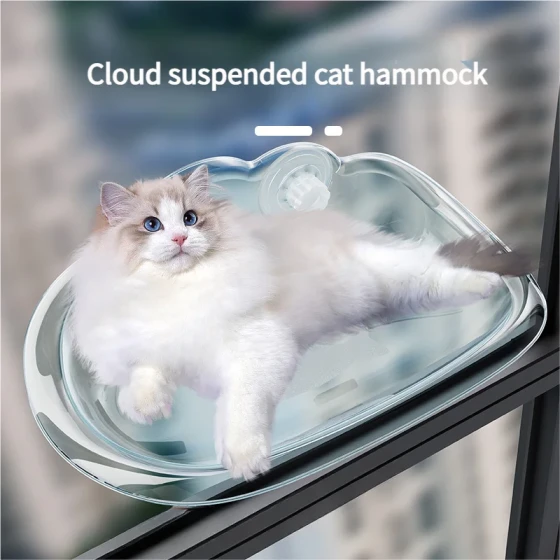
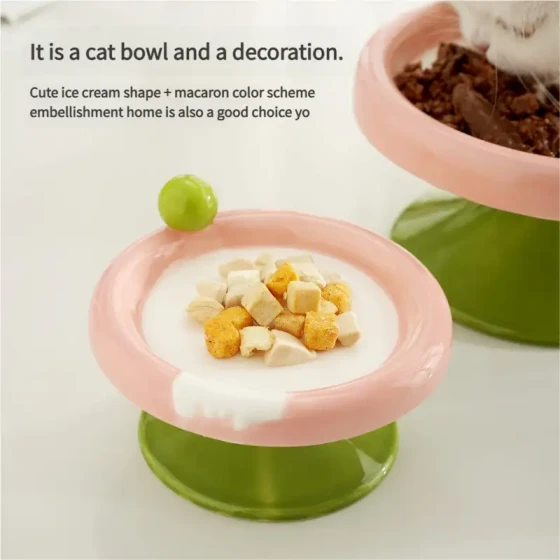
-560x560.webp)

